Keynote Speakers
Will Doyle, Professor of Higher Education and Public Policy, Vanderbilt University
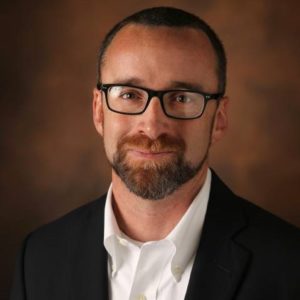
Will Doyle is a professor of higher education and public policy in the department of Leadership, Policy and Organizations at Peabody College of Vanderbilt University. Doyle also serves as Editor in-Chief of Research in Higher Education. His research includes evaluating the impact of higher education policy, understanding the development of higher education policy at the state level and the politics of higher education.
Doyle holds a Master’s degree in Political Science and a PhD in Higher Education Administration from Stanford University. Doyle has previously served as the Senior Content Expert for the Institute of Education Science’s What Works Clearinghouse, and is an affiliated faculty member in Vanderbilt’s Scientific Computing and Data Science programs.
Doyle has worked extensively to expand Data Science instruction at Vanderbilt, and is the co-instructor of DS 1000, How Data Shape Our World—Vanderbilt’s first university-wide data science course.
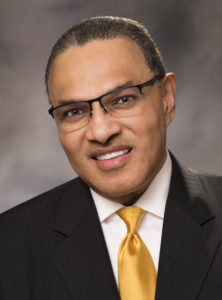
Freeman A. Hrabowski III, President of The University of Maryland, Baltimore County
Freeman A. Hrabowski, III, has served as President of UMBC (The University of Maryland, Baltimore County) since 1992. His research and publications focus on science and math education, with special emphasis on minority participation and performance. He chaired the National Academies’ committee that produced the 2011 report, Expanding Underrepresented Minority Participation: America’s Science and Technology Talent at the Crossroads. He was named in 2012 by President Obama to chair the President’s Advisory Commission on Educational Excellence for African Americans. His 2013 TED talk highlights the “Four Pillars of College Success in Science.”
In 2008, he was named one of America’s Best Leaders by U.S. News & World Report, which ranked UMBC the nation’s #1 “Up and Coming” university for six years (2009-14). For the past five years (2015-19), U.S. News ranked UMBC in the top ten on a list of the nation’s “most innovative” national universities. For the past 10 years, U.S. News also consistently ranked UMBC among the nation’s leading institutions for “Best Undergraduate Teaching.” TIME magazine named him one of America’s 10 Best College Presidents in 2009, and one of the“100 Most Influential People in the World” in 2012. In 2011, he received both the TIAA-CREF Theodore M. Hesburgh Award for Leadership Excellence and the Carnegie Corporation of New York’s Academic Leadership Award, recognized by many as the nation’s highest awards among higher education leaders. Also in 2011, he was named one of seven Top American Leaders by The Washington Post and the Harvard Kennedy School’s Center for Public Leadership. In 2012, he received the Heinz Award for his contributions to improving the “Human Condition” and was among the inaugural inductees into the U.S. News & World Report STEM Solutions Leadership Hall of Fame. More recently, he received the American Council on Education’s Lifetime Achievement Award (2018), was named a recipient of the University of California, Berkeley’s Clark Kerr Award (2019), and awarded the University of California, San Francisco’s UCSF Medal (2020).
With philanthropist Robert Meyerhoff, he co-founded the Meyerhoff Scholars Program in 1988. The program is open to all high-achieving students committed to pursuing advanced degrees and research careers in science and engineering, and advancing underrepresented minorities in these fields. The program is recognized as a national model, and based on program outcomes, Hrabowski has authored numerous articles and co-authored two books, Beating the Odds and Overcoming the Odds (Oxford University Press), focusing on parenting and high-achieving African American males and females in science. His 2015 book, Holding Fast to Dreams: Empowering Youth from the Civil Rights Crusade to STEM Achievement (Beacon Press), describes the events and experiences that played a central role in his development as an educator and leader. The Empowered University: Shared Leadership, Culture Change, and Academic Success (Johns Hopkins University Press), the 2019 book he wrote with two colleagues, examines how university communities support academic success by cultivating an empowering institutional culture.
Sam Kariuki, Chief Research Scientist and Director of Research and Development, Kenya Medical Research Institute (KEMRI)
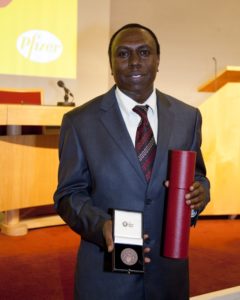
Sam Kariuki is Chief Research Scientist and Director, Research and Development at KEMRI in Nairobi. He is also a Wellcome Trust Sanger Institute International Fellow, a Fellow of the African Academy of Sciences, and a visiting Professor of Tropical Microbiology in the Nuffield Department of Medicine at University of Oxford. His research interests are in the epidemiology and molecular characterization of enteric bacterial pathogens and antimicrobial resistance, including invasive non-typhoidal salmonellosis (NTS) and typhoid fever, Shigellaspp, Vibrio cholerae,and Escherichia coli. He has authored/co-authored over 140 papers in peer-reviewed journals and 3 text books on Antimicrobial Resistance (AMR) and Food Safety. His research has contributed extensively to policy change in treatment and management of foodborne infections locally and in the understanding of zoonotic bacterial infections and AMR in general. Some of the outputs include seminal papers and reviews published by the World Health Organization and Food and Agriculture Organization website on Food Safety along the meat value chains in Kenya (http://www.fao.org/fileadmin/user_upload/agns/news_events/AMR_in_Kenya.pdf).
As a national coordinator for the Global Antibiotic Resistance Partnership (GARP), he was principal author of Situation Analysis: Antibiotic Use and Resistance in Kenya, under the Global Antibiotic Resistance Partnership (GARP) in Kenya. He is also a member of the Ministry of Health National Antimicrobial Stewardship Advisory Committee (NASAC) providing policy direction for AMR and AMU surveillance in interministerial One-Health National Team. As a member of the World Health Organization Advisory Group on Integrated Surveillance of Antimicrobial Resistance, he provides guidance on AMR surveillance for the region.
Mark Hugo Lopez, Director of Race and Ethnicity Research, Pew Research Center

Mark Hugo Lopez is Director of Race and Ethnicity Research at Pew Research Center, where he leads planning of the Center’s research agenda focused on chronicling the diverse, ever-changing racial and ethnic landscape of the United States. He is an expert on issues of racial and ethnic identity, Latino politics and culture, the U.S. Hispanic and Asian American populations, global and domestic immigration, and the U.S. demographic landscape. Lopez was previously the Center’s Director of Global Migration and Demography, and Director of Hispanic Research.
Lopez is the co-editor of “Adjusting to a World in Motion: Trends in Global Migration and Migration Policy.” He is a co-author of “The Future of the First Amendment” and has contributed chapters to several books about voting and young Latinos.
Prior to joining Pew Research Center, Lopez served as a research assistant professor at the University of Maryland’s School of Public Policy and as research director of the Center for Information and Research on Civic Learning and Engagement (CIRCLE).
Lopez received his doctorate in economics from Princeton University. He is an author of reports about the Hispanic electorate, Hispanic identity and immigration. Lopez frequently appears in national and international media in both Spanish and English.
Fay Cobb Payton, Chief Programs Officer at the Kapor Center

Dr. Fay Cobb Payton is currently the Chief Programs Officer at the Kapor Center. In this senior leadership role, she develops strategy to drive an agenda for an equitable tech ecosystem for underrepresented groups across Kapor Capital, Kapor Foundation, Kapor Enterprises and SMASH. This includes integrating programs with input from other C-suite leaders and collaboration with community, industry, higher education, other foundations, thought leaders and strategic partners.
Prior to joining the Kapor Center, Dr. Payton was a Program Director at the National Science Foundation (NSF) in the Division of Computer and Network Systems. At the NSF, she initiated with the CISE Minority-Serving Institutions Research Expansion Program (CISE-MSI Program) along with the Access to Cloud Computing Resources. At NSF, she was involved several initiatives, including Smart Health and Biomedical Research in the Era of Artificial Intelligence and Advanced Data Science (SCH), Artificial Intelligence-FEAT, Computing In Undergraduate Education, Broadening Participating Alliances in Computing and a number of other cross-directorate programs (INCLUDES, ADVANCE, HBCU Excellence in Research and NSF Research Traineeship). She (along with a group of colleagues) received the 2020 NSF Director’s Award.
Dr. Payton is also Professor Emerita and was a Full Professor (with Tenure) of Information Technology/Analytics at NC State University. At NC State, she was named a University Faculty Scholar for her leadership in turning research into solutions to society’s most pressing issues.
Her research interests include healthcare IT/informatics/disparities; data quality; bias in AI/information seeking/HCI; access and participation in computing/STEM and entrepreneurship pathways. She has published over 100 peer-reviewed journal articles, conference publications and book chapters. Her research has been published and/or forthcoming in the Journal of the American Medical Informatics Association, Issues in Science and Technology, Communications of the ACM, European Journal of Information Systems, Journal of Medical Internet Research, IIE Transactions on Healthcare Systems Engineering, Information Systems Journal, Journal of the Association for Information Science and Technology, Health Care Management Science, Telemedicine and eHealth, just to name a few. The National Science Foundation, National Institutes of Health, AT&T, Kenan Institute and others have supported Dr. Payton’s research and teaching.
Dean Don Pope-Davis, Dean of the College of Education and Human Ecology, The Ohio State University
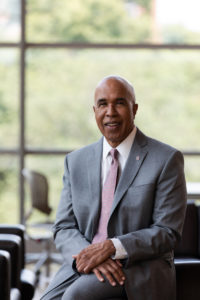
Don Pope-Davis (PhD, Stanford University) is Dean of the College of Education and Human Ecology at The Ohio State University. He is passionate about using higher education to address issues of equity, economic growth and the psychological well-being of educators and students.
An educator for more than 25 years, he previously was dean of the College of Education at New Mexico State University, a Hispanic-serving institution. He also served in senior-level positions at the University of Notre Dame. Pope-Davis’ work on religious attitudes, multicultural competence and unintentional racism in counseling is widely published in peer-reviewed journals. He is an elected Fellow of the American Psychological Association’s Society for Psychological Study of Ethnic Minority Issues and a Fellow of the Society of Counseling Psychology.
His most recent book, published by Cambridge University Press, examines the attitudes of Black Catholics in America. He is president-elect of the Council of Academic Deans from Research Education Institutions (CADREI), a member of the steering committee of Deans for Social Justice and Equity in Education and past chair of the American Psychological Association’s Committee of Ethnic Minority Affairs.
Shu-Hua Wang, Director of Research and Implementation Science, Global One Health initiative (GOHi)
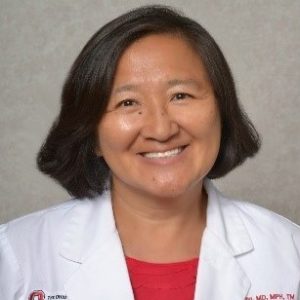
Dr. Shu-Hua Wang is the Director of Research and Implementation Science for the Columbus Team of Global One Health initiative (GOHi). Dr. Wang is also an Associate Professor of Internal Medicine at the Ohio State University College of Medicine, and the Medical Director of the Ben Franklin TB Program for Columbus Public Health. Dr. Wang’s clinical interests include the diagnosis and treatment of tuberculosis (TB) and its complications and multidrug resistant pathogens such as methicillin resistant Staphylococcus aureus (MRSA). She has research interest in rapid TB diagnostic tests and molecular epidemiology of MRSA. She has published in both areas of TB and MRSA. She is currently involved in several international Global One Health and TB projects Ethiopia, China and Guatemala and antimicrobial resistance (AMR) project in Ethiopia.
Dr. Wang earned her PharmD at the University of California, San Francisco and completed her MD at the Medical College of Wisconsin. Dr. Wang also holds a Master of Public Health and Tropical Medicine (MPH & TM) from Tulane University.
Vivian OTA WANG, Policy and COVID Activities Lead, National Institutes of Health (NIH)
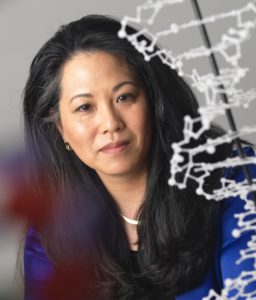
Dr. Vivian OTA WANG’s domestic and global expertise in research, education, science policy, and ethics span the psychological, genomic, nanoscale, and data sciences. She currently applies her expertise in racial identity, community engagement, and research participant protections to data science as the Policy and COVID Activities Lead at the Office of Data Science Strategy in the Division of Program Coordination, Planning, and Strategic Initiatives in the Office of the Director at the National Institutes of Health (NIH).
Previously, she served as the Deputy Director at the Office of Data Sharing at the National Cancer Institute-NIH and a Program Director for Data Access and Sharing and the Ethical, Legal, and Social Implications (ELSI) Research Program at the National Human Genome Research Institute-NIH. Her other public service includes serving at the Executive Office of the President’s National Science and Technology Council under the Bush and Obama administrations where she developed public engagement and ELSI guidance for nanoscience and nanotechnology and as a Senior Advisor to the NIH’s Office of Behavioral and Social Sciences Research Director. Prior to joining the NIH, she was a genetic counselor at the University of Colorado, and held tenure-track faculty positions at Rutgers, Arizona State, and Vanderbilt universities where she maintained a research program on racial identity and multicultural competencies related to research ethics, program development and evaluation, and community engagement.
As the National Society of Genetic Counselor’s (NSGC) Audrey Heimler Special Projects Fund recipient, she created and implemented a multicultural competence-based curriculum in US genetic counseling training programs. She also was responsible for the HapMap sample collections and community engagements for the self-identified Han Chinese in China and the US and was a voting member on FDA), Cardiovascular and Renal Drugs Advisory Committee for BiDil™, the first FDA approved “race-specific” drug. She also served as the NSGC’s Ethic Subcommittee Chair, the American Psychological Association’s (APA) inaugural Committee on Human Research, Good Governance Project Implementation Working Group, and Commission on Ethical Processes that was charged with assessing and developing ethics policies and procedures in response to APA’s involvement with national security interrogations. In 1998 and 2020, she served as Guest Editor for the Journal of Genetic Counseling’s Multicultural Genetic Counseling and Minority of Minority and Health Disparities in Genetic Counseling Special Issues respectively.
She received a BA in Biology (Colorado College), an MS in Genetic Counseling (University of Colorado) and an MPhil and PhD in Counseling Psychology (Columbia University). She is a Fellow of the American Medical Association (American College of Medical Genetics) and American Psychological Association (Divisions 17 & 45), Diplomate of the American Board of Medical Genetics and American Board of Genetic Counseling, and a licensed psychologist.
Getnet Yimer Ali, Eastern African Regional Director, Global One Health initiative (GOHi)

Dr. Getnet Yimer, a physician, scientist and consultant medical specialist, is the Regional Director for Global One Health Initiative of the Ohio State University in Eastern Africa. Prior to this, he served as a Director for Research and Technology Transfer at the College of Health Sciences, Addis Ababa University. For over 7 years, he has worked as consultant on TB-HIV clinical trials for WHO-TDR in charge of leading and coordinating activities in 6 African countries namely Tanzania, Zambia, Uganda, Nigeria, South Africa, and Ethiopia. Getnet is also a member of the National Health Research Ethics Review Committee at the Ministry of Science and Higher Education and the National Drug Advisory Committee at the Ethiopian Food, Medicines and Healthcare Administration and Control Authority.
He is the current chair for the National TB advisory committee in Ethiopia. He has served as a PI for a number of projects funded by; CDC-PEPFAR (1U2GGH001477-01), Swiss National Foundation (R01 MH922731), USAID, EDCTP, Novartis and GSK and as a co-PI for NIH D43- TW010143-01 (MEPI), HRSA–T84HA21124-05-01 (iRIM), World Bank (CDT-Africa), EDCTP, and Astra Zeneca funded projects. Getnet has have published over 50 international peer reviewed publications and a book chapter. Dr. Getnet is part of the TARTARE steering committee and will also be serving on the Disease Burden team.
Invited Speakers
Zheng Chen, Lecturer of Education, Wuhan University
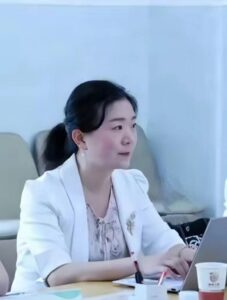
Zheng Chen is a lecturer of education in the Institute of Education of Wuhan University, Hubei, China. She has a Ph.D. in Educational Administration and Policy from the Chinese University of Hong Kong. Currently, her research focus on positive education, teacher development, and digital learning.
She has published over 40 academic articles and 1 book, translated 3 books from English into Chinese.
Email her at: zhengzhengc2@whu.edu.cn
Gregory Hancock, Professor and Chair of Measurement, Statistics and Evaluation and Director of the Center for Integrated Latent Variable Research (CILVR), University of Maryland, College Park

Dr. Gregory Hancock is Professor and Chair of Measurement, Statistics and Evaluation in the Department of Human Development and Quantitative Methodology at the University of Maryland, College Park, and Director of the Center for Integrated Latent Variable Research (CILVR). His research interests include structural equation modeling and latent growth models, and the use of latent variables in (quasi)experimental design. His research has appeared in such journals as Psychometrika, Multivariate Behavioral Research, Structural Equation Modeling: A Multidisciplinary Journal, Psychological Bulletin, British Journal of Mathematical and Statistical Psychology, Journal of Educational and Behavioral Statistics, Educational and Psychological Measurement, Review of Educational Research, and Communications in Statistics: Simulation and Computation.
Dr. Hancock also co-edited with Ralph O. Mueller the volumes Structural Equation Modeling: A Second Course (2006) and The Reviewer’s Guide to Quantitative Methods in the Social Sciences (2010), with Karen M. Samuelsen the volume Advances in Latent Variable Mixture Models (2008), and with Jeffrey R. Harring the volume Advances in Longitudinal Methods in the Social and Behavioral Sciences (2012). He is past chair of the SEM special interest group of the American Educational Research Association (three terms), serves on the editorial board of a number of journals including Psychological Methods and is Associate Editor of Structural Equation Modeling: A Multidisciplinary Journal, and has taught dozens of SEM workshops in the United States, Canada, and abroad.
Dr. Hancock received the 2011 Jacob Cohen Award for Distinguished Contributions to Teaching and Mentoring by the American Psychological Association. He earned his Ph.D. from the University of Washington. In addition to his academic work, Greg and his co-host, Patrick Curran, host a popular podcast on “all things quantitative, ranging from the relevant to the highly irrelevant.”
Owen Mattison, Public Affairs Specialist, Tableau Foundation

Owen Mattison joined Tableau in 2018 and is a member of the Innovation and Impact team. In his current role as a Public Affairs Specialist, he leads the engineering effort to democratize access to publicly available data on the Tableau Data Equity Hub. He also helps nonprofits build capacity by using Tableau to tell impact stories on global stages.
Owen’s prior experience is grounded in data and international workforce development. He earned his MBA in Public and Nonprofit Management from the Questrom School of Business at Boston University.
Kassa Michael, Assistant Professor, Addis Ababa University

Dr. Kassa Michael is an Assistant Professor in the College of Education and Behavioral Studies at Addis Ababa University in Addis Ababa, Ethiopia. His research focuses on mathematics and science education, teacher education programs, and research methodology capacity building. He has also collaborated on many projects with Dr. Ann O’Connell of Ohio State’s College of Education and Human Ecology. He currently serves as an Editorial Board Member for the Ethiopian Journal of Behavioral Studies (EJoBS) and the International Research Journal of Science, Technology, Education, and Management (IRJSTEM). Dr. Michael holds a PhD in Mathematics Education from Addis Ababa University.
Shingo Nahatame, Assistant Professor of Education, University of Tsukuba
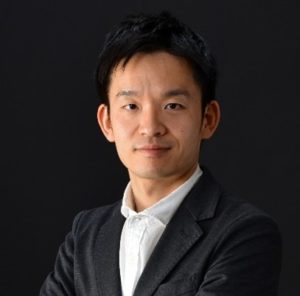
Dr. Shingo Nahatame is an Assistant Professor of Education at the Faculty of Human Sciences, University of Tsukuba, Japan. His research interests include language learning, bilingualism, applied linguistics, psycholinguistics, discourse processing, and computational linguistics. His current research focuses on examining cognitive processes of reading in English as a foreign language (EFL) using eye tracking. He is also interested in quantifying linguistic features of reading materials using computational techniques.
His publications have appeared in such journals as Language Learning, The Modern Language Journal, Reading in a Foreign Language, and Reading Psychology. Nahatame has also served as a reviewer for the Journal of Elementary School English Education Society, The Japan Association of College English Teachers (JACET), Reading in a Foreign Language, Reading Psychology, and Studies in Second Language Learning and Teaching.
Read more about Dr. Nahatame, including his CV, on his Google site.
Channing Nesbitt, Social Impact Program Manager, Tableau Foundation
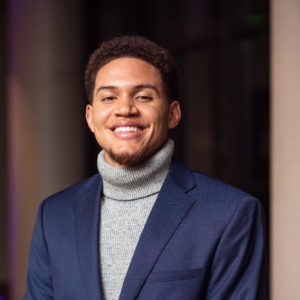
Channing Nesbitt joined Tableau Foundation in 2019 and currently works as a Social Impact Program Manager. He leads the Racial Justice Data Initiative and the Data Equity Hub. Within these roles, Channing works with organizations who focus on using data to combat systemic racism by advancing equity in education, economic opportunity, political empowerment, and justice reform.
Channing also helps manage the grantee success program for all Tableau Foundation non-profit partners.
Channing joined Tableau while completing his master’s degree in public administration from the Evans School at the University of Washington. This experience formed his knowledge of public-private partnerships, social impact, and innovation, and now guides his work at Tableau Foundation.
Invited Faculty Panelists
Dr. Dorinda Gallant, Director of STEM Initiatives, Office of Diversity and Inclusion, Ohio State University

Dorinda Gallant, PhD, is the director of STEM initiatives in the Office of Diversity and Inclusion, director and co-PI of The Ohio LSAMP Alliance, and an associate professor of Quantitative Research, Evaluation and Measurement in the Department of Educational Studies, College of Education and Human Ecology. Her career as an educator began 30 years ago as a middle and high school mathematics teacher in South Carolina. Over the past 16 years, Dr. Gallant has been mentoring and preparing the next generation of educational statisticians and assessment and evaluation experts. Her background and experience in applied measurement positioned her to serve on the GRE® Technical Advisory Committee and currently she serves on the South Carolina Technical Advisory Committee, which provides technical support and guidance to the South Carolina Department of Education on its testing programs. Dr. Gallant has served as a member of the National Council on Measurement in Education Diversity Issues and Testing Committee and as chairperson of the American Educational Research Association Committee on Scholars of Color in Education. Fundamental to her research interests in assessment and program evaluation in K-12 and higher education is applied measurement in education.
Dr. Jessica Logan, Assistant Professor of Quantitative Research, Evaluation and Measurement, Ohio State University
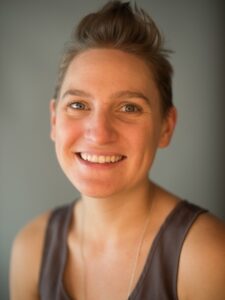
Jessica Logan is an assistant professor of Quantitative Research, Evaluation and Measurement in the College of Education and Human Ecology. She is a quantitative methodologist with a multidisciplinary research agenda that informs the fields of research methodology and developmental science. She is also focused on improving the data management and data quality practices of researchers in the education sciences, encouraging transparency in science, and improving education researchers’ statistical conclusion validity.
She is an advocate of team science, and find that both the educational field and methodological fields are advanced through open collaboration.
Dr. Jolynn Pek, Associate Professor of Psychology, Ohio State University
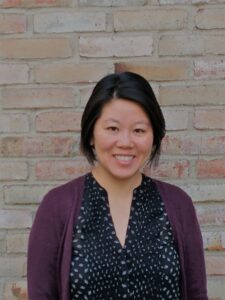
Jolynn Pek is an Associate Professor in the Department of Psychology at The Ohio State University. She received her Ph.D. in Quantitative Psychology from the University of North Carolina at Chapel Hill in 2012. She won the Society of Multivariate Experimental Psychology Early Career Research Award in 2021 and is an Association for Psychological Science Rising Star in 2017.
Her methodological research interests are motivated by quantifying uncertainty inherent in results obtained from fitting models to data, especially latent variable models, and bringing methods into practice.
Dr. Anna Yocom, Senior Lecturer, Department of Psychology, Ohio State University
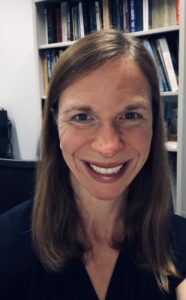
Anna Yocom is a senior lecturer in the Department of Psychology at The Ohio State University. She received her Ph.D. in Comparative and Developmental Psychology and has taught Data Analysis in Psychology at Ohio State for over 10 years. Dr. Yocom also works as a content writer for the American Psychological Association’s PsycLearn digital textbook initiative and was part of the development team for PsycLearn Statistics for the Behavioral Sciences. In this role she has been able to apply learning science principles to engage students and provide interactive content that is accessible to all learners.
Dr. Yocom is an advocate of active learning and accessibility in large classrooms.
Invited Student Panelists
Abena Anyidoho, Third Year Ph.D. Candidate, Quantitative Research, Evaluation and Measurement, Ohio State University
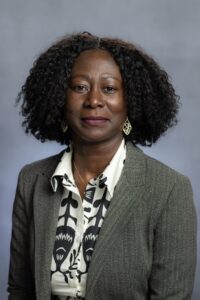
Abena Anyidoho is a third year doctoral candidate with the Quantitative Research Evaluation and Measurement program in the Educational Studies department. Abena works with the Assessment team at the Center on Education and Training for Employment (CETE) as a graduate research assistant.
She previously worked with the Ohio Louis Stokes Alliance for Minority Participation (LSAMP) and the Workforce Development and Education (WDE) program as a graduate administrative assistant. Her research interests are in program evaluation, educational assessment, and underrepresented minority students in STEM.
Victoria Barbosa Olivo, Ph.D. Candidate, Higher Education and Student Affairs, Ohio State University
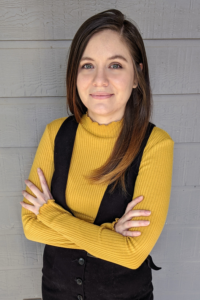
Victoria Barbosa Olivo, M.S., M.A. (she/her) is a Ph.D. candidate at The Ohio State University in Higher Education and Student Affairs. She received her M.S. in Psychology, M.A. in History, and her B.A. in Psychology and Women’s Studies at The University of Texas at San Antonio. Her research focuses on Minority Serving Institutions and organizational identity. She specifically examines how organizational identity influences minoritized groups organizational expectations in higher education using a multidisciplinary approach. Find her on Twitter @academic_V
Mark Jones, Third Year Ph.D. Candidate, School Psychology, Ohio State University
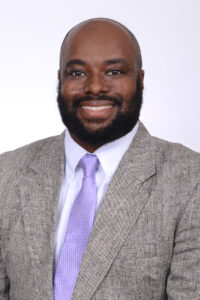
Mark Jones is a 3rd-year Ph.D. student in The Ohio State University’s school psychology program. Prior to coming to Ohio State, Mark worked as a research coordinator at Nationwide Children’s Hospital Child Development Center, where his passion for research first formed. He graduated from Capital University in May 2017 with a Bachelor of Arts in Psychology.
Mark is currently a member of the Positive Youth Development Lab (PYDL) where he works on research identifying the protective and risk factors that contribute to educational experiences of Black students in schools, and understanding factors that promote the well-being of Black students. Mark’s current research interests include: understanding teacher-student relationships in Black children and how these contribute to well-being and success, and exploring how teachers’ perceptions of Black boys relate to their well-being and sense of school-belonging.
Saetbyul (Clara) Kim, Ph.D. Candidate, Educational Psychology, Ohio State University

Saetbyul (Clara) Kim M.A. (she/her) is a Ph.D. candidate at The Ohio State University in the Educational Psychology program. She double-majored education and social work at Yonsei University (South Korea) for her B.A. and received M.A. in Educational Psychology at Seoul National University (South Korea). Her research interest lies in civic learning, prosocial behaviors, community service, dialogic discussion, and more broadly positive youth development and character education.
Krista Scott, Associate Dean for Undergraduate Programs, College of Humanities and Sciences, Virginia Commonwealth University
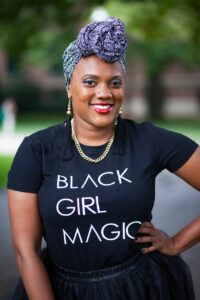
Krista Scott is the associate dean for undergraduate programs in the College of Humanities and Sciences at Virginia Commonwealth University. She is currently completing her doctorate in Higher Education and Student Affairs with a Graduate Minor in Public Policy. She is passionate about helping students find their academic home and helping them achieve success as they progress towards their degree. Scott is responsible for the development and implementation of strategy for undergraduate education and student success, including enrollment management, recruiting, advising, student outcomes and guidance on development of new degree programs. Her position supports ambitious university enrollment goals of building talented and diverse incoming classes by actively recruiting, admitting, enrolling and graduating students.
Paul Whalen, First Year Ph.D. Student, Quantitative Research, Evaluation and Measurement, Ohio State University
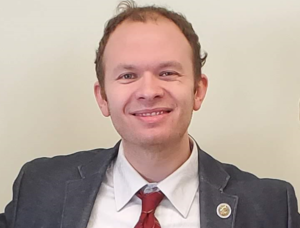
Paul Whalen is a first year PhD student in Quantitative Research, Evaluation & Measurement. He’s previously worked professionally for the last five years in Higher Education at The Pennsylvania State University & West Chester University. He has a Master’s degree in Higher Education & Policy Studies. His research interests include quantitative methods, assessment & evaluation, and higher education student outcomes.
